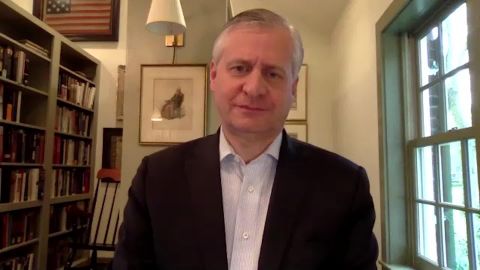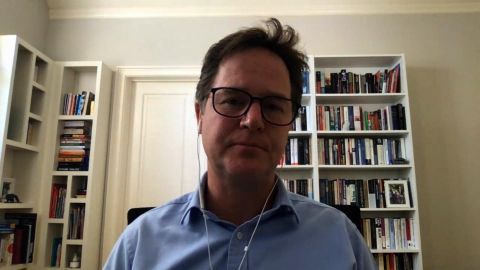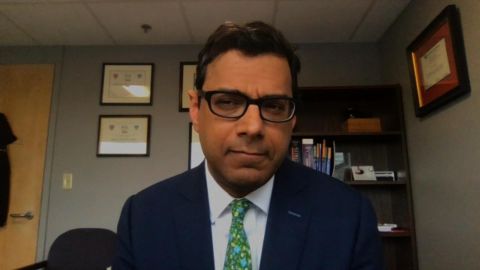Read Transcript EXPAND
CHRISTIANE AMANPOUR: Let me ask you because, you know, Facebook has taken a huge number of slings and arrows over information, data, as you very, very well know over the last years. What have you put in place to help those who we just saw, the doctors, the people who need it the most, the researchers, everybody who needs the most information they can possibly get right now?
NICK CLEGG, VP FOR GLOBAL AFFAIRS AND COMMUNICATIONS, FACEBOOK: So, the most important thing we are trying to do is to give users of Facebook, Instagram, WhatsApp and then so on as much reliable and credible information from the experts about this pandemic. So, for instance, we have created a coronavirus information center, which you will see at the top of the newsfeed and about a billion people through that information center and more and counting have seen some of that reliable information from the World Health Organization and other experts. 100 million of that billion have already then clicked through to find more detail.
And we are doing innovative things. So, for instance, health ministries around the world, Pakistan just started to doing this, I think, yesterday, are using WhatsApp to communicate with people in their countries with very specific information about what they should do to keep themselves safe. W.H.O. has a bot which is available on WhatsApp, so you can receive information directly from the W.H.O. And about around 100 million people, and again, it increases every day, have been receiving messages from health ministries and other experts through that WhatsApp route as well. So, that’s one thing we do. Then, of course, you also have to work hard — we have to work hard to identify and suppress misinformation about the virus. So, anything we find, and it is a constant battle to find the misinformation that might be circulating. But when we find it, if it poses any real-world harm, in other words, if that information could lead people to being more vulnerable to — of being infected by the virus and otherwise, would be the case, we remove it.
And then for things which are just misleading but are not, in that sense, sort of dangerous, we will try to refer it to around 55 independent fact checkers we work with around the world who operate in over 40 languages which will then identify whether something is misleading or inaccurate. It will then be downgraded on your newsfeed so it’s much harder to see and a filter put over it, identifying it as having been to be wanting by fact checkers. So, those are the kind of things that we do in all of those fronts to make sure that our platforms are a force for good at this very difficult time.
About This Episode EXPAND
Dr. Atul Gawande joins Christiane Amanpour to reflect on another week of tragedies and challenges. Nick Clegg, VP for global affairs and communications at Facebook, discusses the spread of false and dangerous information. Presidential historian Jon Meacham dissects the performance of President Trump in the COVID-19 crisis. David Beasley discuses his experience falling ill with the virus.
LEARN MORE



